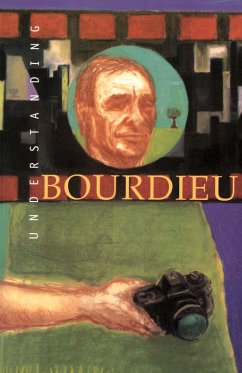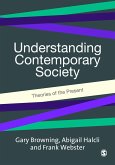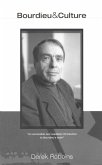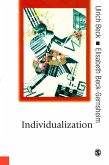"Bourdieu's work is formidable - the journey is tough. Follow this French foreign legion - take an apple, take a hanky - but take this book".
- Peter Beilharz , La Trobe University
"A good range of recent examples from popular culture are used to flesh out the material in accessible terms. These examples are deployed very well indeed - rather than being tacked-on illustrations of an idea, they are instead used at the heart of the explanation of the ideas".
- David Gauntlett, Leeds University
Now considered one of the most influential thinkers of the 20th century, Pierre Bourdieu has left his mark on most of the 'big' theoretical issues in the world of contemporary theory: gender, subjectivity, the body, culture, citizenship, and globalization. His terms are now commonplace: 'social capital', 'cultural capital', 'field', and 'habitus'.
Bourdieu examines how people conduct their lives in relation to one another and to major social institutions. He argues that culture and education aren't simply minor influences, but as important as economics in determining differences between groups of people. Unlike the other grand systematisers Marx and Foucault, Bourdieu has tested these arguments in detailed fieldwork. His range is eclectic, his vision is vast, and his writing is often dense and challenging.
Understanding Bourdieu offers a comprehensive introduction to Bourdieu's work. It is essential reading for anyone tackling him for the first time.
Hinweis: Dieser Artikel kann nur an eine deutsche Lieferadresse ausgeliefert werden.
- Peter Beilharz , La Trobe University
"A good range of recent examples from popular culture are used to flesh out the material in accessible terms. These examples are deployed very well indeed - rather than being tacked-on illustrations of an idea, they are instead used at the heart of the explanation of the ideas".
- David Gauntlett, Leeds University
Now considered one of the most influential thinkers of the 20th century, Pierre Bourdieu has left his mark on most of the 'big' theoretical issues in the world of contemporary theory: gender, subjectivity, the body, culture, citizenship, and globalization. His terms are now commonplace: 'social capital', 'cultural capital', 'field', and 'habitus'.
Bourdieu examines how people conduct their lives in relation to one another and to major social institutions. He argues that culture and education aren't simply minor influences, but as important as economics in determining differences between groups of people. Unlike the other grand systematisers Marx and Foucault, Bourdieu has tested these arguments in detailed fieldwork. His range is eclectic, his vision is vast, and his writing is often dense and challenging.
Understanding Bourdieu offers a comprehensive introduction to Bourdieu's work. It is essential reading for anyone tackling him for the first time.
Dieser Download kann aus rechtlichen Gründen nur mit Rechnungsadresse in A, D ausgeliefert werden.
Hinweis: Dieser Artikel kann nur an eine deutsche Lieferadresse ausgeliefert werden.









